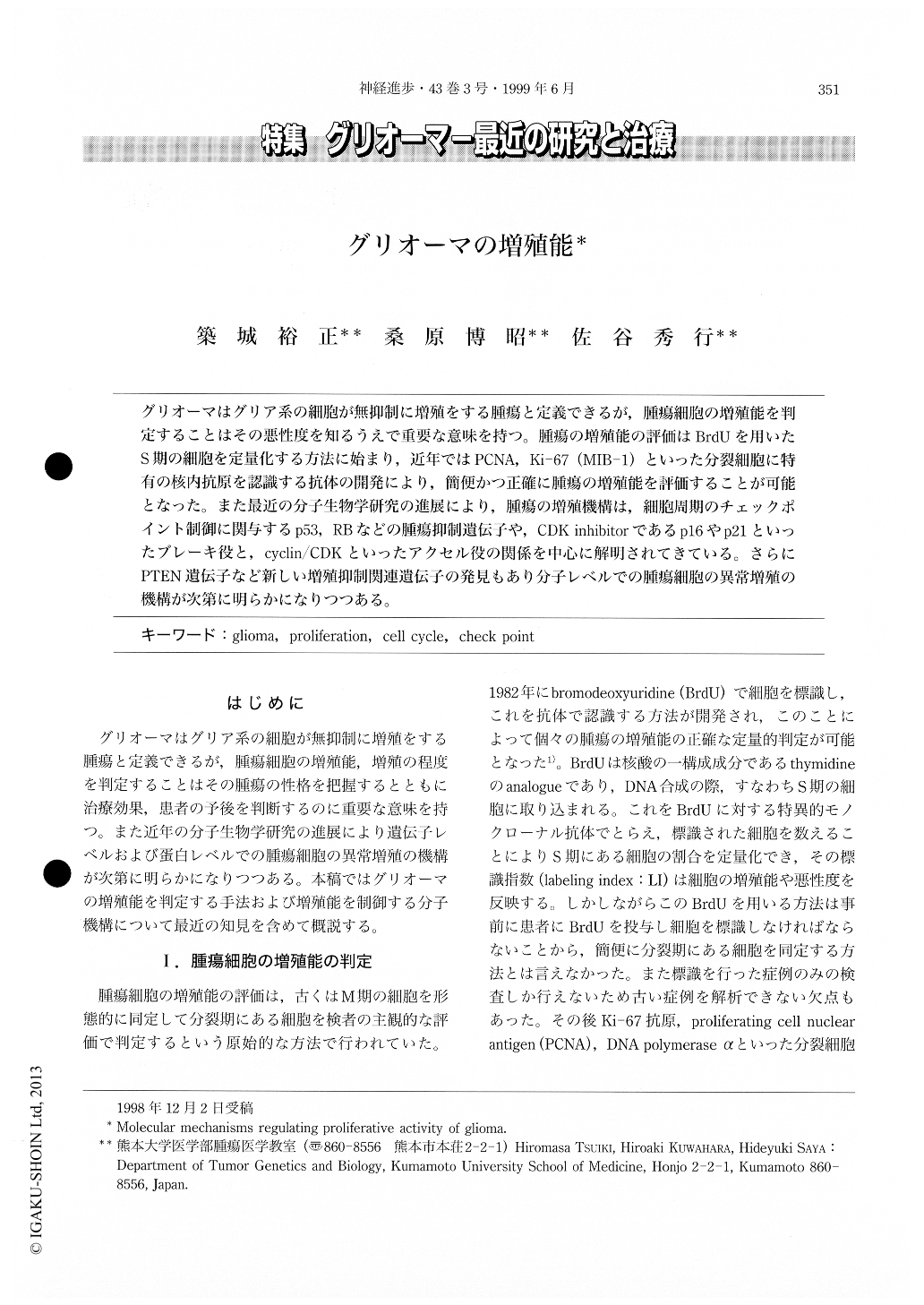Japanese
English
- 有料閲覧
- Abstract 文献概要
- 1ページ目 Look Inside
グリオーマはグリア系の細胞が無抑制に増殖をする腫瘍と定義できるが,腫瘍細胞の増殖能を判定することはその悪性度を知るうえで重要な意味を持つ。腫瘍の増殖能の評価はBrdUを用いたs期の細胞を定量化する方法に始まり,近年ではPcNA,Ki-67(MIB-1)といった分裂細胞に特有の核内抗原を認識する抗体の開発により,簡便かつ正確に腫瘍の増殖能を評価することが可能となった。また最近の分子生物学研究の進展により,腫瘍の増殖機構は,細胞周期のチェックポイント制御に関与するp53,RBなどの腫瘍抑制遺伝子や,CDK inhibitorであるp16やp21といったブレーキ役と,cyclin/CDKといったアクセル役の関係を中心に解明されてきている。さらにPTEN遺伝子など新しい増殖抑制関連遺伝子の発見もあり分子レベルでの腫瘍細胞の異常増殖の機構が次第に明らかになりつつある。
Glioma, which is one of the most life-threating tumors of human beings, is defined as the tumor composed with uncontrolled proliferative glial cells. For the prediction of patient prognosis and the decision of therapeutic strategy, it is important to assess proliferative activity of the glioma cells. In vivo BrdU labeling method was applied to evaluate proliferative activity of the glioma cells in 1980's. In these days, antibodies against proliferating cell nuclear antigen (PCNA) and Ki-67 (MIB-1) have been developed and routinely used for evaluating of the proliferative activity of glioma cells. Moreover, recent molecular biological studies have elucidated molecular mechanisms regulating tumor proliferation and progression. We here describe the methods assessing the proliferative activity of the tumor cells and summarize recent findings of molecular mechanisms involved in cell cycle regulation of glioma cells. Furthermore, we also describe the implication of a newly identified tumor suppressor, PTEN, in progression and proliferation of glioma cells.

Copyright © 1999, Igaku-Shoin Ltd. All rights reserved.


